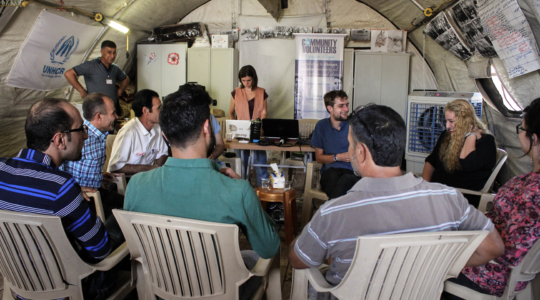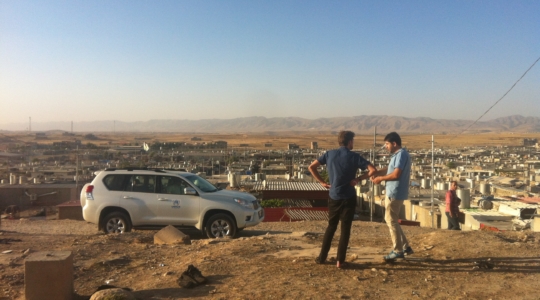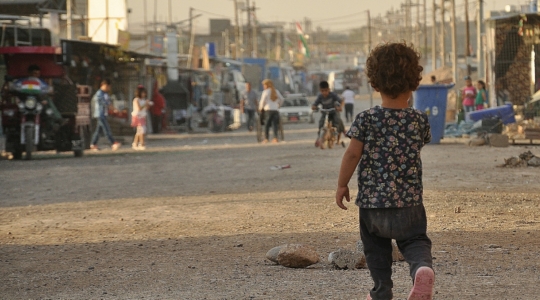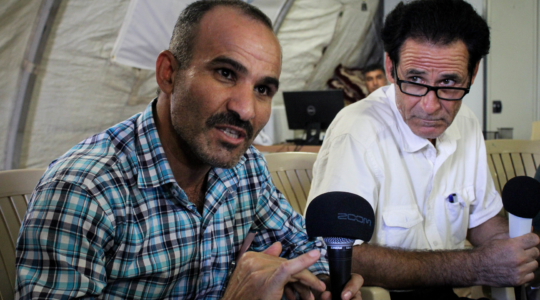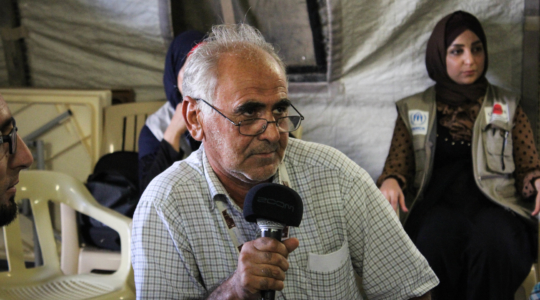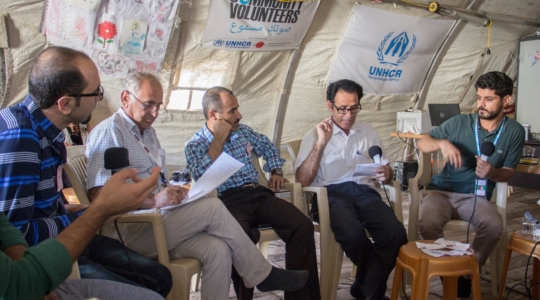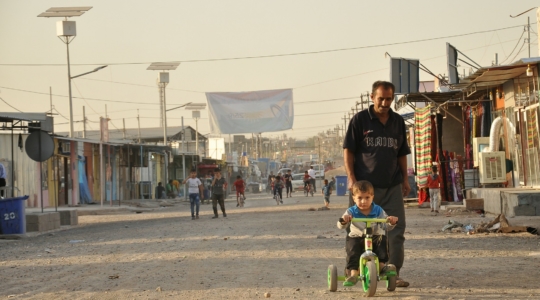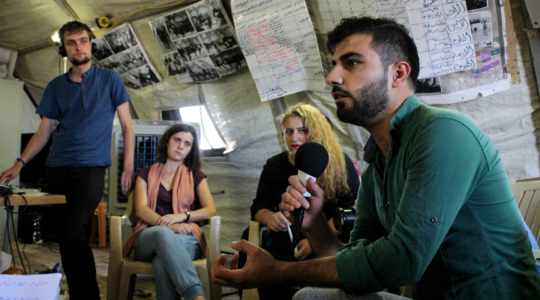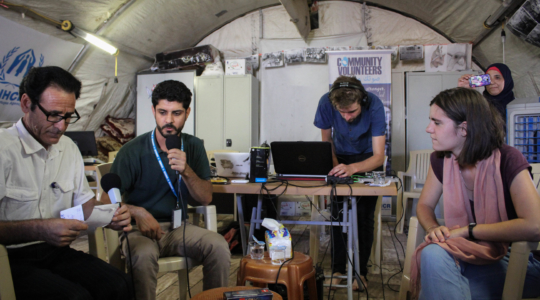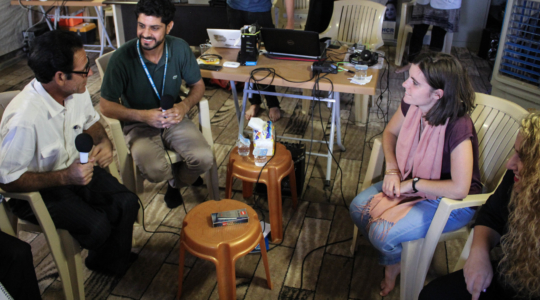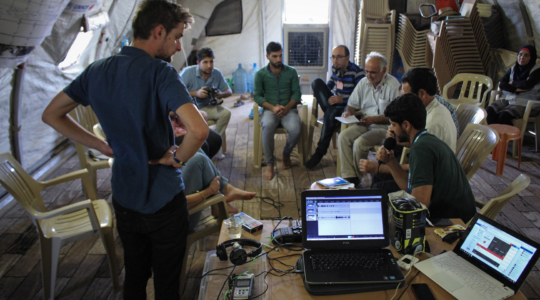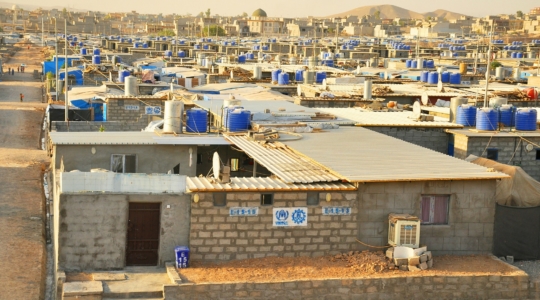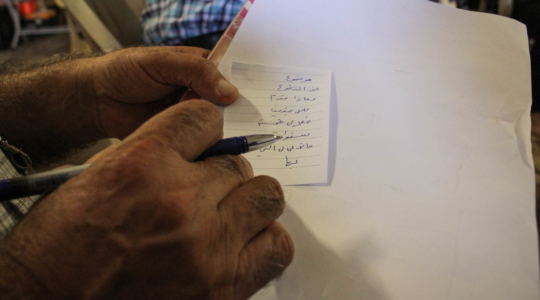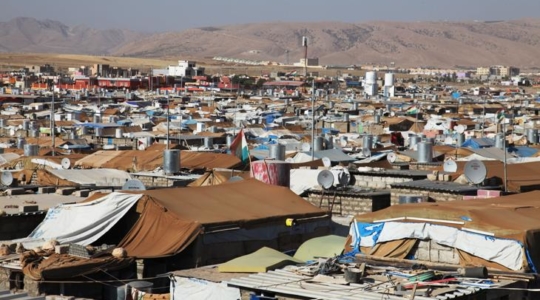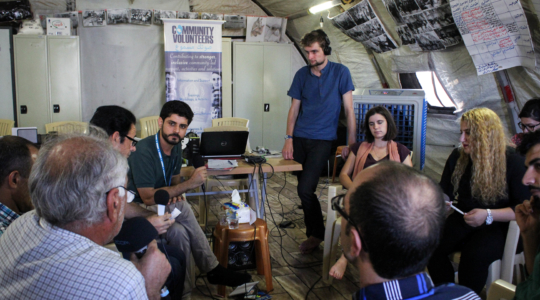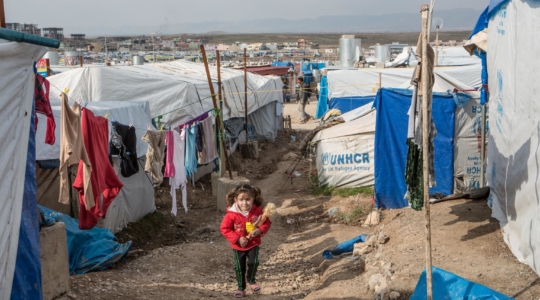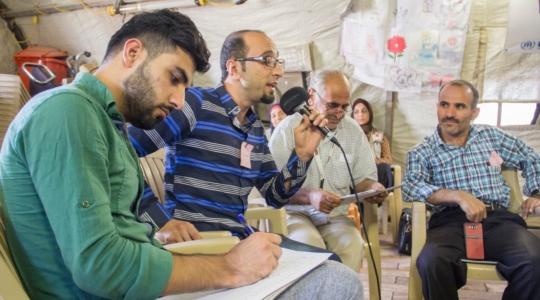Pendant l’été 2017, Cloé Chastel et Antoine Lalanne-Desmet ont facilité des ateliers radios au nord de l’Irak dans la région du Kurdistan.
Pendant deux mois, ils sont allés dans une dizaine de camps, dans un collège et dans un lycée. Ceci a donné naissance à des émissions radios variées.
La liste des ateliers menés au nord de l’Irak (plus d’informations en cliquant sur le titre de l’atelier).
08/10/17 dans le camp de Basirma
02/10/17 avec des femmes syrienne depuis le camp de Barika
05/10/17 – avec Zekia, Sahiro, Hasa, Sherwan, membres irakien.nne.s et syrien.ne.s du centre Turak géré par la Judy Organization for Relief and Development
01/10/17 – avec Ahmed, Nweed, Sinam, Tave, Sema, Helin, Shnia, Daryan, Baveen, Sahand, Safar, Bako et Zhewar des élèves de l’Ecole française de Soulaymaniyah pour leur podcast : Les lumières de Soulay (Français)
24/09/17- avec Chino, Fozia, Aya, Diana, Shora, Chera,membre irakien.ne.s et syrien.nne.s du centre Daratoo géré par la Judy Organization for Relief and Development
19/09/17 – avec Nesrien, Haida, Fatima, Shereen, Hani, Houda, Jasmina, Sohad, Sabiha, Hasma & Alya, des irakiennes du camp de Harsham à Erbil.
19/09/17 – avec Hihab, Kram, Samir, Réma, Raïma & Shénar, des irakiens du camp de Harsham à Erbil. Leur émission s’appelle : “Hope in the camp “
20/09/17 – avec Aram, Rhéa, Arjane, Nirvana, Ala, Arî, Mariam, Noorane, lycéens du lycée français Danielle Mitterrand à Erbil – pour leur émisssion consacré au Kurdistan, à l’écologie, à l’art, au sports et au voyage.
11/09/17 – avec Hannah, Rami & Kindi, des chrétiennes déplacées de Mossoul et de Karakoch, dans le camp d’Ashti-2 à Ainkawa à Erbil pour une émission intitulée : “Le retour” .























